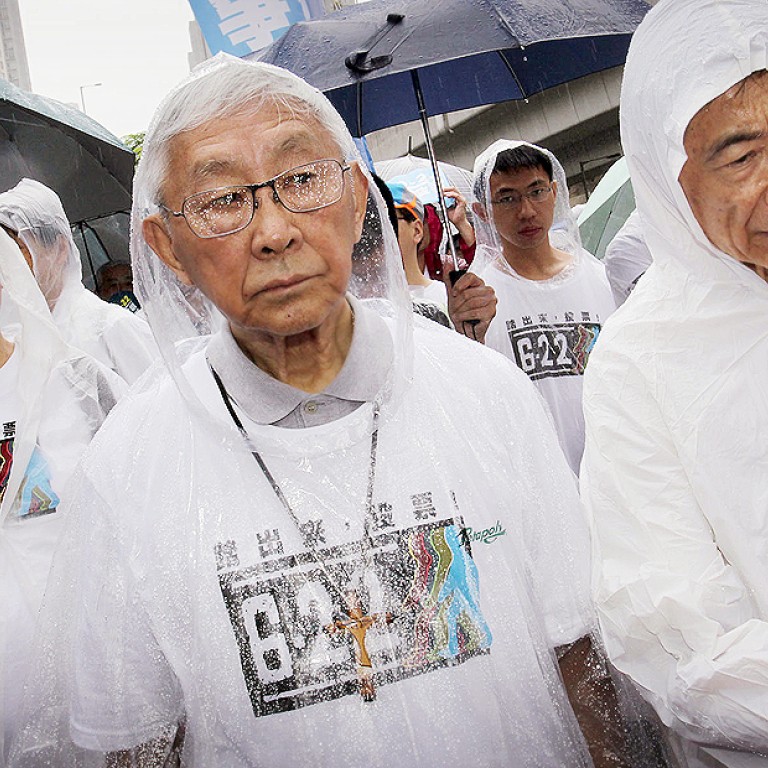
Give us 'one man, one vote' even if there's no public nomination in 2017: poll
Survey shows majority of Hongkongers will sacrifice public nomination for chance to exercise their right to vote in 2017
More than half the city wants the "one man, one vote" system introduced for the 2017 chief executive election even if it follows a candidate-nomination process that they are unhappy with, a survey has found.

The survey, conducted by Lingnan University, was commissioned by the 15-strong Concern Group for Public Opinion on Constitutional Development. The group includes three Democratic Party members; Andy Ho On-tat, a former information coordinator for ex-chief executive Donald Tsang Yam-kuen; and Centaline Property Agency boss Shih Wing-ching.
At a press conference yesterday, Ho emphasised that the group was committed to a nonpartisan approach on reform.
"We don't belong to any political camp and we don't know how our findings will affect others' choices," Ho said. "We don't have a collective opinion on any proposal in particular, or on Occupy Central … we just wanted to deepen discussion in the society through our survey."
One of the Democrats - former lawmaker Fred Li Wah-ming - also stressed that his party had nothing to do with the concern group. He added that a report on the survey would be sent to all 70 lawmakers and the Hong Kong government.
Based on the poll, the people want to encourage lawmakers to be flexible and open to negotiation, said Dr Cheung Kwok-wah, another member of the concern group and dean of education and languages at the Open University. "Hongkongers treasure their right to choose," he added.
The finding that 52 per cent of Hongkongers do not believe public nomination is illegal will not make pleasant reading for Beijing loyalists.
Nor will the finding that 54 per cent of Hongkongers want "one man, one vote" regardless of the nominating process please pan-democratic lawmakers. They have threatened to veto a government reform proposal that fails to give voters a genuine choice.
However, only 35 per cent of respondents said they would rather keep the status quo if the proposal was unsatisfactory.
Cheung noted that about 36 per cent of the respondents identified themselves as pan-democratic, while about a fifth said they were pro-establishment.
About a quarter believed the local government should get the blame if the reform process fails; 18 per cent pointed to Beijing and 15 per cent the pan-democrats.
Last night, Labour Party chairman Lee Cheuk-yan said he did not think pan-democrats should vote in favour of an "unsatisfactory" proposal. "But as a political party, we need to have our ideals while listening to the public."
Cardinal Joseph Zen Ze-kiun led marchers from Lam Tin through Wong Tai Sin to Lok Fu yesterday on day two of his seven-day campaign to rally voters to take part in Occupy Central's "referendum", which starts on Friday.

